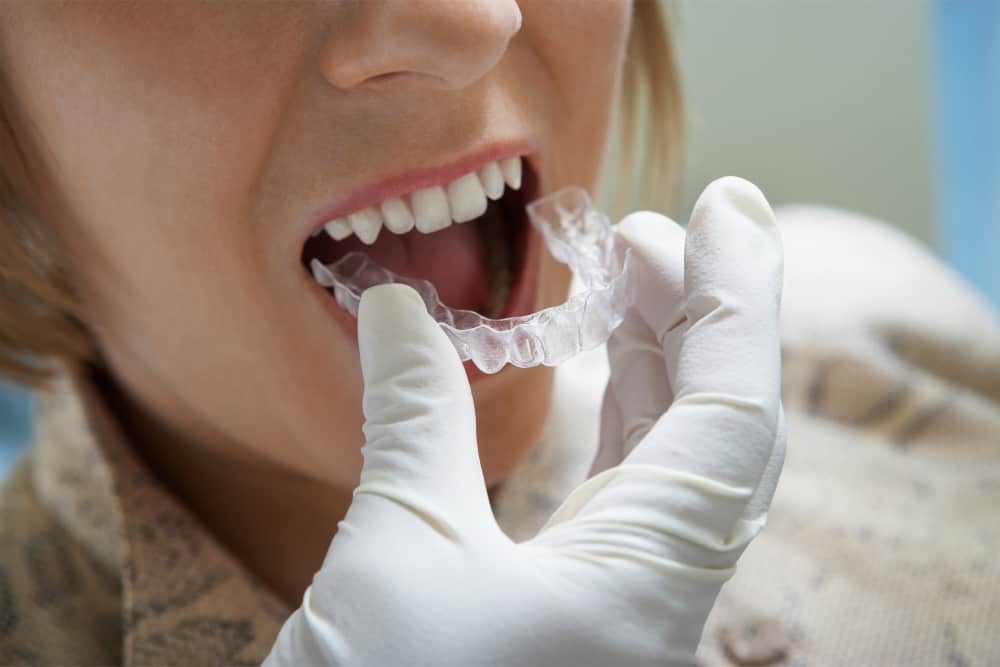Dental Lab Tech Career Facts
Updated: 2021 Career data comes from the most recent BLS publication. Education information comes from schools, credentialing and accrediting organizations and is subject to change.
Though the most well-known position in a dentist’s office is a dentist, there are a number of other dental care providers who work with dentists to provide the care patients need to keep their teeth healthy and their smiles beautiful. One position that provides an integral role as part of the dental care team is the dental lab technician. Understanding what a dental lab technician is and how to pursue this career path can help you determine if this is a good option for you to work in the dental field.
In short, a dental lab technician works directly with dentists to outline, design and create a wide variety of dental prostheses such as dentures for specific patient needs.
Unlike dental assistants, who work in a dental office with patients, a dental lab technician helps dentists provide the dental devices needed to correct problems patients face in order to give them the smiles they want and need. This work begins after patients are examined and a care plan has been developed to address dental concerns they have. Using information provided by dentists, dental lab technicians help create appliances like:
Typically, dental lab technicians specialize in one of the following areas:
Formal education may not be required to become a dental lab technician. Some employers may provide on-the-job training rather than formal education or training. In that case, only a high school diploma or GED would be required for employment.
Taking the time to complete education and training will make you more competitive in the marketplace and increase your earning potential.
For those seeking formal education and training, such as a technical school or college, most dental lab tech programs require a high school diploma or GED for admission. The education options for dental lab technicians is a two or four-year degree program. The two-year program provides students with the ability to become certified along with an Associate degree. The four-year program provides the same certification preparation along with a Bachelor’s degree.
All dental lab technician programs consist of both dental specific curriculum paired with general education coursework. These programs are available at many different educational institutions, including community colleges, technical colleges, vocational schools, dental schools, and some general universities.

After completing the education program, students are able to begin working as dental lab technicians. Though a license is not required to work, it is recommended and may be required or preferred by individual employers. Certification is overseen by the National Board for Certification in Dental Laboratory Technology (NBCDLT).
In order to receive certification, students must complete an accredited program as well as have a minimum of two years of experience. If you did not go through an education program and instead received on-the-job training, you may take the certification exam after five years of work experience. Dental lab technicians with certification are referred to as Certified Dental Technicians (CDT).
Dental lab technicians earn a very competitive salary of $36,690 if you have a high school diploma or equivalent and the field is projected to grow at an above average rate of 11%.
Here are dental lab technician salary and career statistics from the BLS:
| Quick Facts: Dental and Ophthalmic Laboratory Technicians and Medical Appliance Technicians | |
|---|---|
| 2018 Median Pay | $36,690 per year $17.64 per hour |
| Typical Entry-Level Education | High school diploma or equivalent |
| Work Experience in a Related Occupation | None |
| On-the-job Training | Moderate-term on-the-job training |
| Number of Jobs, 2018 | 81,500 |
| Job Outlook, 2018-28 | 11% (Much faster than average) |
| Employment Change, 2018-28 | 9,100 |
If you are interested in a dental lab tech program then click on the blue find schools button to compare programs near you.
